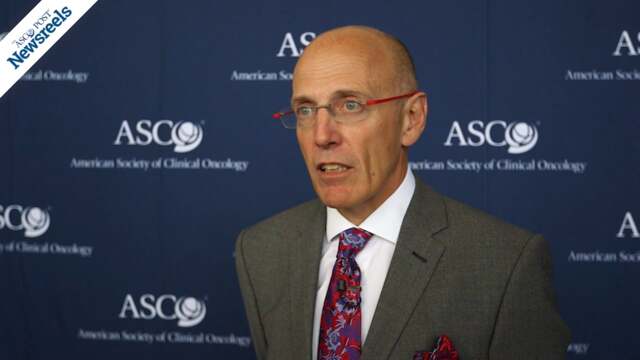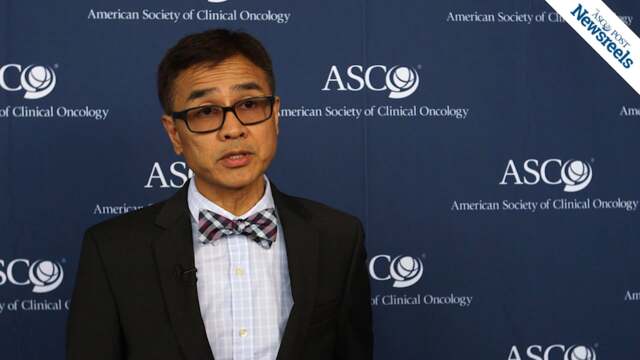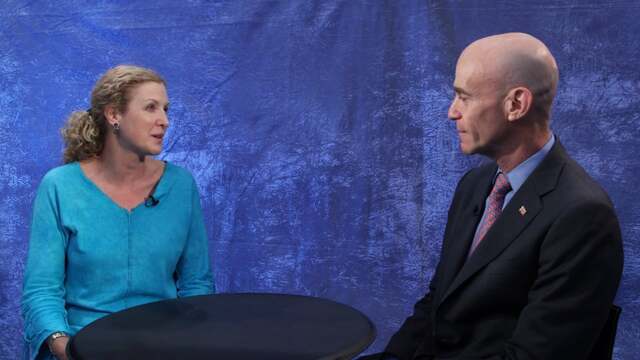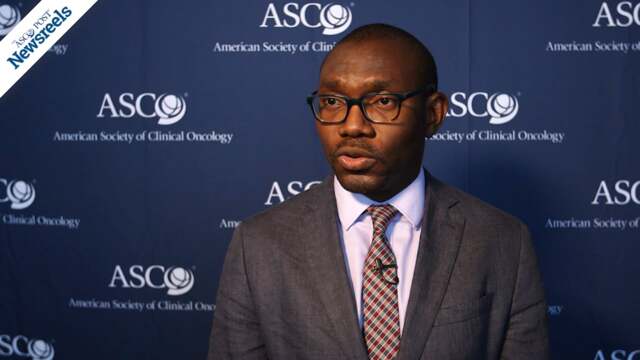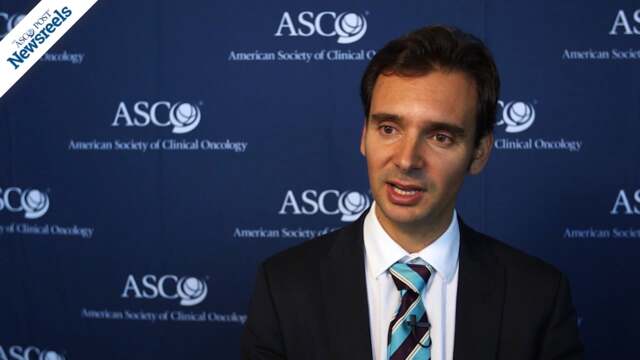David H. Henry, MD, on Advances in Lung Cancer, Colorectal Cancer: Expert Perspective
2017 ASCO Annual Meeting
David H. Henry, MD, of Pennsylvania Oncology Hematology Associates, outlines abstracts focusing on chemotherapy in locally advanced rectal cancer and immune-related toxicity, response to anti–PD-L1 blockade, and epacadostat plus pembrolizumab in lung cancer.
Nicholas D. James, MBBS, PhD, of Queen Elizabeth Hospital, discusses study findings on adding abiraterone for men with high-risk prostate cancer starting long-term androgen-deprivation therapy (Abstract LBA5003).
Primo Lara, MD, of the University of California, Davis Comprehensive Cancer Center, discusses three top abstracts on treating advanced renal cell carcinoma with epacadostat, pembrolizumab, atezolizumab, bevacizumab, sunitinib, or pazopanib. (Abstracts 4505, 4507, 4515)
Lisa A. Carey, MD, of the University of North Carolina, and Mark E. Robson, MD, of Memorial Sloan Kettering Cancer Center, discuss phase III study findings on olaparib monotherapy vs chemotherapy for patients with HER2-negative metastatic breast cancer and a germline BRCA mutation. (Abstract LBA4)
Temidayo Fadelu, MD, of Dana-Farber Cancer Institute, discusses study findings on nut consumption and survival in stage III colon cancer patients. Higher consumption of nuts may be associated with significantly reduced cancer recurrence and death in this group. (Abstract 3517)
Gerhardt Attard, MD, PhD, of The Royal Marsden Hospital and The Institute of Cancer Research, discusses trial results on continued enzalutamide post prostate-specific antigen progression in men with chemotherapy-naive metastatic castration-resistant prostate cancer. (Abstract 5004)
